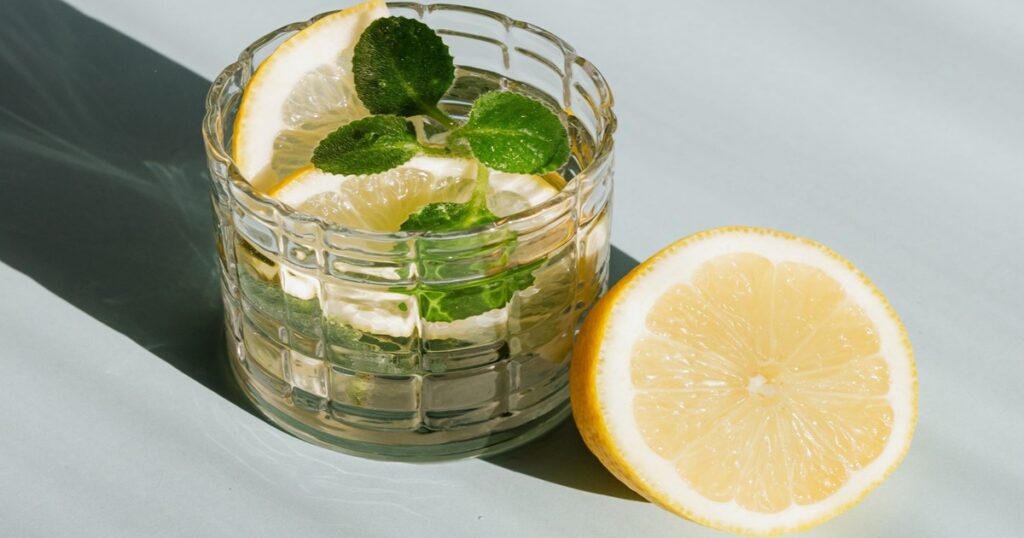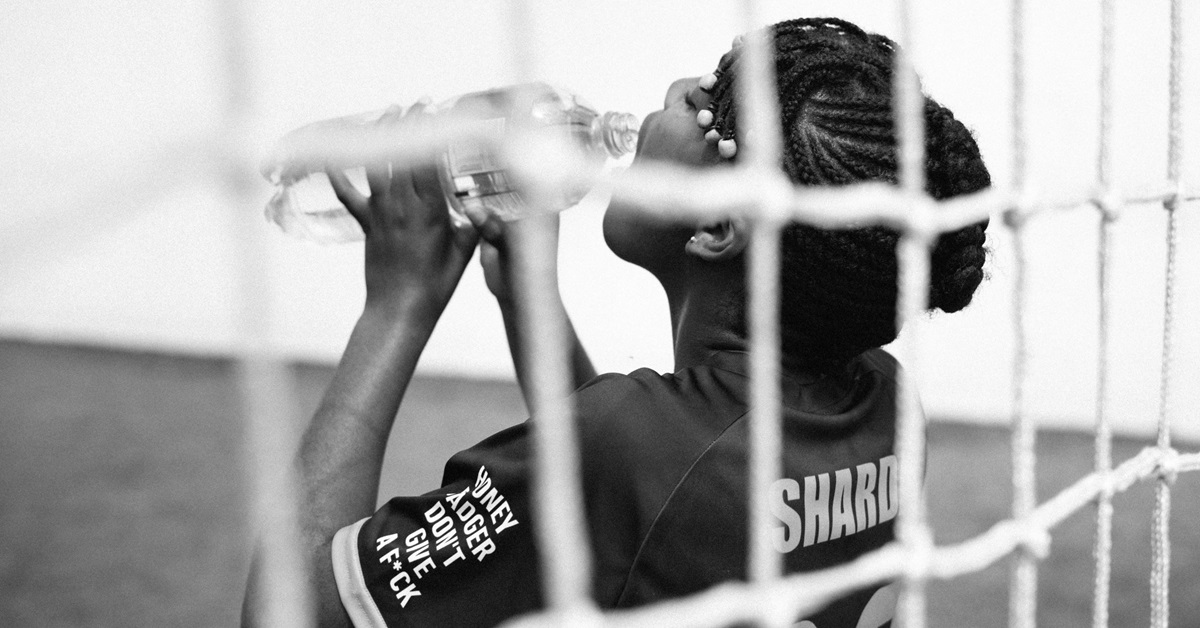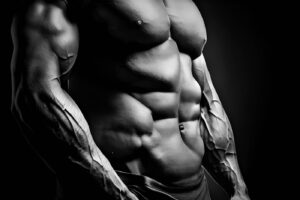Introduction
In the hustle of daily life, staying hydrated often takes a backseat. This comprehensive guide, “Hydration 101,” dives into the importance of meeting your daily water goals, providing practical tips, examples, and insights to keep you hydrated.
Daily Water Goals: Why Hydration Matters

The Role of Water in Your Body
Water is vital for our body’s health and functioning. It plays a crucial role in hydration, making up a significant portion of cells, tissues, and organs. Beyond quenching thirst, water facilitates nutrient transport, aiding the delivery of essential substances throughout the body. It contributes to temperature regulation by enabling sweating and respiratory processes. Water is essential for joint lubrication, supporting smooth movement, and it plays a key role in digestion, helping break down food and maintain mucous membranes. Therefore, you need to set your daily water goals.
Additionally, water is involved in biochemical reactions within cells, assists in waste elimination through urine formation, and helps maintain electrolyte balance critical for cellular function. Blood, composed mainly of water, carries nutrients and oxygen while removing waste. Adequate hydration is crucial for skin health, influencing factors like elasticity. Individual water needs vary based on factors like age, activity level, and climate. Maintaining proper hydration is essential for optimal bodily functions, ensuring overall well-being in various physiological processes.
Benefits of Proper Hydration
Proper hydration is fundamental to overall health and well-being. The human body relies on water for numerous vital functions, and maintaining an adequate water balance is crucial for optimal performance. Now, let’s delve into the specific benefits of ensuring that you stay properly hydrated:
- Optimal Physical Performance: Proper hydration enhances endurance, strength, and overall physical performance during activities, aiding in better exercise outcomes.
- Temperature Regulation: Hydration assists the body in regulating temperature through efficient sweating and heat dissipation, preventing overheating during physical exertion.
- Cognitive Function: Well-hydrated individuals often experience improved cognitive function, including better concentration, alertness, and short-term memory.
- Joint and Muscle Health: Adequate hydration helps lubricate joints and supports the overall health of muscles, reducing the risk of cramps and injuries.
- Digestive Health: Water aids in the digestion and absorption of nutrients, contributing to a healthy digestive system and preventing issues like constipation.
- Toxin Elimination: Hydration supports the kidneys in effectively filtering and eliminating toxins from the body through urine, promoting kidney health.
- Skin Radiance: Proper hydration promotes skin elasticity and hydration, contributing to a healthy and radiant complexion.
- Weight Management: Drinking water before meals can help control appetite, potentially assisting in weight management by reducing overall calorie intake.
- Energy Boost: Staying hydrated can combat feelings of fatigue and increase energy levels, supporting overall vitality throughout the day.
- Immune System Support: Hydration plays a role in maintaining a well-functioning immune system, potentially reducing the risk of infections and illnesses.
Remember, individual hydration needs vary, and it’s essential to adjust water intake based on factors like age, activity level, and climate to reap these benefits.
Calculating Your Daily Water Goals
The 8×8 Rule: Myth or Fact?
The 8×8 rule, suggesting the consumption of eight 8-ounce glasses of water a day, is a commonly cited guideline for daily water goals. However, it’s essential to recognize that individual hydration needs can vary based on factors such as age, weight, climate, and physical activity level. While the 8×8 rule provides a simple and easy-to-remember recommendation, it may not be universally applicable. Some people may require more or less water to stay adequately hydrated. The Institute of Medicine suggests a more personalized approach, considering factors like body weight and climate conditions. It’s crucial for individuals to listen to their bodies, paying attention to thirst signals and adjusting water intake accordingly. Rather than strictly adhering to a one-size-fits-all rule, individuals should focus on maintaining a balance that meets their unique hydration needs.
Water Intake Calculator
Use a water intake calculator to determine your personalized daily water goals. Consider your lifestyle, exercise routine, and climate for accurate results.
Daily Water Intake Calculator
Tips From Supabottle for Staying Hydrated
Staying adequately hydrated is essential for overall health and well-being. While individual hydration needs vary, incorporating simple yet effective strategies into daily routines can help ensure a consistent and healthy water intake. One key tip is to carry a reusable water bottle throughout the day, making it convenient to sip water regularly. Setting reminders on your phone or incorporating water breaks into your schedule can help establish a hydration routine. Choosing water-rich foods like fruits and vegetables, and opting for hydrating beverages such as herbal teas, can also contribute to overall fluid intake. Additionally, paying attention to thirst cues and adjusting water intake based on factors like physical activity and climate are crucial steps in maintaining optimal hydration levels. Here are some practical tips to help you stay hydrated:
- Carry a reusable water bottle for a sustainable living: Having water readily available encourages regular sipping throughout the day.
- Set reminders: Use alarms or smartphone apps to remind yourself to drink water at regular intervals.
- Infuse your water: Add natural flavors by infusing water with fruits, herbs, or cucumber for a refreshing twist.
- Include hydrating foods: Consume water-rich foods like watermelon, cucumber, and celery to supplement your fluid intake.
- Monitor urine color: A light, pale yellow color indicates proper hydration, while dark yellow may suggest the need for more water.
- Establish a routine: Incorporate water breaks into your daily schedule to make hydration a habit.
- Drink before meals: Having a glass of water before meals not only aids in hydration but may also help control appetite.
- Choose hydrating beverages: Opt for herbal teas or diluted fruit juices to add variety to your fluid intake.
Remember that individual hydration needs can vary, so it’s essential to listen to your body and adjust your water intake accordingly.
Recognizing Dehydration Signs
Identifying signs of dehydration is crucial for maintaining overall health. Common indicators include experiencing thirst, the body’s fundamental signal for water needs, as well as observing dark urine, which serves as a key marker of dehydration. Fatigue, characterized by a lack of energy, can also be a sign that the body is not adequately hydrated. Our body is not a great example of thermal insulation, as it lets out heat, energy, and water easily, thus creating dehydration. To address dehydration effectively, it’s essential to recognize these signs promptly.
Taking a proactive approach, individuals can prioritize hydration by consistently sipping water throughout the day instead of consuming large amounts at once. This steady intake helps maintain a proper fluid balance in the body and prevents the onset of dehydration. Understanding the significance of these signs and adopting a habit of regular, moderate water consumption contributes to overall well-being. By heeding the body’s signals and making hydration a consistent part of daily routines, individuals can support their energy levels, promote optimal bodily functions, and prevent the potentially detrimental effects of dehydration on health.
Hydration and Exercise
Pre-Workout Hydration
Pre-workout hydration is essential for optimizing exercise performance and minimizing the risk of dehydration-related issues. When you engage in physical activity, your body loses fluids through sweat, and adequate hydration is crucial for maintaining endurance, strength, and overall well-being during workouts. Here are key considerations for pre-workout hydration:
- Timing is Crucial: Aim to consume fluids well before your workout, typically about 2 to 3 hours in advance. This allows your body to absorb and distribute the water, ensuring you start your exercise session adequately hydrated.
- Monitor Urine Color: Check the color of your urine as a quick indicator of your hydration status. Light, pale yellow urine suggests good hydration, while darker urine may indicate the need for more fluids.
- Drink Throughout the Day: Hydration is an ongoing process, and it’s beneficial to drink water consistently throughout the day. This helps maintain a baseline level of hydration, making it easier to top up before your workout.
- Consider Electrolytes: If your workout involves intense or prolonged physical activity, consider including electrolytes in your pre-workout routine. Electrolytes, such as sodium and potassium, help maintain fluid balance and support muscle function.
- Individual Needs Vary: Factors like the intensity and duration of your exercise, climate conditions, and your individual sweat rate influence your hydration needs. Tailor your pre-workout hydration strategy based on these factors.
- Avoid Overhydration: While staying hydrated is crucial, be mindful not to overhydrate immediately before exercising, as this can lead to discomfort and may impact performance.
- Hydrate with Beverages of Choice: Water is a great choice for hydration, but other beverages like sports drinks or coconut water can be suitable, especially if you’re engaging in prolonged or intense workouts.
Prioritizing pre-workout hydration helps ensure that your body is adequately prepared for the physical demands of exercise, promoting optimal performance and recovery. Listen to your body, adopt a personalized approach, and make hydration an integral part of your overall fitness routine.
Hydration During Exercise
Hydration during exercise is critical for maintaining performance, preventing dehydration, and supporting overall well-being. As you engage in physical activity, your body loses fluids through sweating, and it’s essential to replenish them to ensure optimal function. Here are key considerations for staying hydrated during exercise:
- Sip Regularly: Instead of waiting until you feel thirsty, make a habit of sipping water regularly throughout your workout. Thirst is a delayed signal, and by the time you feel it, you may already be mildly dehydrated.
- Know Your Sweat Rate: Everyone sweats differently, influenced by factors like body size, fitness level, and environmental conditions. Understanding your sweat rate helps you estimate how much fluid you need to consume to offset losses during exercise.
- Electrolyte Balance: For prolonged or intense exercise sessions, especially in hot climates, consider beverages that contain electrolytes (sodium, potassium, magnesium). Electrolytes help replace minerals lost through sweat and maintain proper fluid balance in the body.
- Water Temperature: Some people find that cool or slightly chilled water is more palatable during exercise. Experiment with water temperatures to find what works best for you and encourages consistent drinking.
- Individualized Approach: Hydration needs vary among individuals. Factors such as age, weight, fitness level, and the type of exercise influence how much fluid you should consume. Tailor your hydration strategy to your specific needs and listen to your body.
- Avoid Overhydration: While it’s crucial to stay hydrated, overhydration can lead to hyponatremia, a condition where sodium levels in the blood become dangerously low. Balance your fluid intake without excessive consumption.
- Rehydrate Post-Exercise: After your workout, continue to drink fluids to replace any remaining fluid deficits. This supports recovery and helps prepare your body for future exercise sessions.
- Monitor Signs of Dehydration: Keep an eye out for signs of dehydration, such as dark urine, dizziness, or an increased heart rate. Adjust your fluid intake accordingly to maintain proper hydration levels.
Whether you’re engaged in cardio, strength training, or any other form of exercise, staying hydrated is vital for sustaining energy levels, promoting endurance, and supporting overall performance.
Post-Workout Hydration
Post-workout hydration is a crucial aspect of the recovery process, aiding in the restoration of fluid balance, electrolytes, and overall well-being after physical activity. Here are key considerations for effective post-workout hydration:
- Replenish Fluid Losses: During exercise, the body loses fluids through sweating. After your workout, it’s essential to replenish these losses by drinking water. The amount will depend on factors like the duration and intensity of your exercise.
- Include Electrolytes: If you engaged in prolonged or intense exercise, consider beverages containing electrolytes to replenish minerals like sodium, potassium, and magnesium. Electrolytes support muscle function and help restore the body’s electrolyte balance.
- Timing Matters: Aim to rehydrate as soon as possible after your workout. Consuming fluids promptly helps kickstart the recovery process and supports the body in returning to a hydrated state.
- Monitor Urine Color: Checking the color of your urine is a quick way to assess hydration status. Light yellow urine indicates proper hydration, while darker urine may suggest the need for more fluids.
- Optimal Post-Workout Beverage: Water is a fundamental choice for rehydration, but depending on the intensity and duration of your workout, sports drinks or beverages with a mix of carbohydrates and proteins can be beneficial.
- Balanced Hydration: While it’s crucial to rehydrate, avoid excessive fluid intake to prevent hyponatremia. A balanced approach ensures optimal recovery without the risk of diluting essential electrolytes in the body.
- Listen to Your Body: Individual hydration needs vary, so pay attention to your body’s signals. Thirst, fatigue, and the sensation of dry mouth can be indicators that you need to drink more fluids.
- Whole Foods for Hydration: In addition to beverages, consider incorporating hydrating whole foods into your post-workout nutrition, such as water-rich fruits and vegetables.
By prioritizing post-workout hydration, you support muscle recovery, reduce the risk of dehydration-related issues, and set the stage for improved performance in subsequent workouts.
Hydration and Diet

Water-Rich Foods
Staying adequately hydrated is crucial for overall health and the key of meeting daily water goals. While reaching for a glass of water is a common practice, obtaining hydration from water-rich foods adds an extra layer of nourishment. These foods not only contribute to your fluid intake but also bring a variety of essential nutrients to the table.
Water-Rich Fruits:
- Watermelon: A superbly hydrating fruit, watermelon is composed of over 90% water. Beyond its thirst-quenching properties, it delights the palate with its delicious taste.
- Oranges: Not only are oranges bursting with refreshing water content, but they also boast a rich supply of vitamin C, contributing to both hydration and immune health.
- Berries (Strawberries, Blueberries, and Raspberries): These vibrant berries not only provide a burst of flavor but are also refreshingly high in water content, making them a delightful and hydrating snack.
Hydrating Vegetables:
- Cucumber: Renowned for its crisp texture and mild flavor, cucumber is a hydrating vegetable with a water composition that helps keep you refreshed. Additionally, it is a low-calorie option, making it an excellent choice for those mindful of their calorie intake.
- Celery: With its high water content, celery is not only a hydrating snack but also a crunchy and satisfying option. Its natural hydration properties make it an ideal choice for those looking to quench their thirst while enjoying a crisp and light vegetable.
- Bell Peppers: Apart from adding a burst of color to your meals, bell peppers are known for their hydrating qualities. Incorporating these versatile vegetables into your dishes not only enhances flavor but also contributes to your overall fluid intake, supporting hydration.
Including these water-rich fruits and hydrating vegetables in your diet not only adds variety and flavor but also aids in meeting your daily hydration needs in a delicious and nutritious way.
Limiting Dehydrating Substances
Beaware of substances that contribute to dehydration, such as excessive caffeine and alcohol. Both caffeine and alcohol act as diuretics, increasing urine production and potentially leading to fluid loss. To balance their intake, incorporate additional water consumption throughout the day. Caffeine, found in coffee, tea, and energy drinks, can be enjoyed in moderation, but it’s essential to offset its diuretic effects by drinking water. Similarly, alcohol consumption should be accompanied by an increased intake of water to counteract its dehydrating impact. Aim to drink a glass of water for every serving of caffeinated or alcoholic beverage to maintain proper hydration levels. Additionally, be mindful of other dehydrating factors, such as intense physical activity and hot weather, and adjust your water intake accordingly. Prioritize hydration by listening to your body’s signals and making conscious choices to support overall well-being.
Daily Water Goals for Different Lifestyles

Tips for Office Workers
For office workers, maintaining hydration is vital for concentration and well-being. Keep a reusable water bottle on your desk as a visual reminder for your daily water goals. Set hourly alarms to prompt short breaks for sipping water. Opt for hydrating snacks like fruits and veggies. Limit caffeinated beverages and balance with water intake. Consider flavored water or herbal teas for variety. Track daily water intake using apps or journals. Lastly, be mindful of air-conditioned environments, which can contribute to dehydration; adjust water intake accordingly. Prioritize hydration for sustained energy and focus throughout the workday.

Hydration for Athletes
Athletes must prioritize hydration for peak performance. Begin by pre-hydrating with water before exercise. During workouts, aim to consume water regularly, especially in intense or prolonged activities. For longer sessions, consider sports drinks to replenish electrolytes. Post-exercise, rehydrate with water to replace fluid losses. Monitor urine color; light yellow indicates proper hydration. Individualize fluid intake based on factors like climate and sweat rate. Avoid excessive caffeine and alcohol, as they contribute to dehydration. Develop daily water goals and listen to your body’s signals for optimal athletic performance and recovery.

Hydration for Seniors
Seniors should prioritize hydration for overall health. Begin the day with a glass of water and maintain regular sips throughout. Keep a water bottle handy as a reminder. Consume hydrating foods like watermelon and cucumbers. Be mindful of medications that may increase dehydration risk and adjust water intake accordingly. In hot weather, increase fluid intake and avoid excessive caffeine. Monitor urine color; pale yellow suggests proper hydration. Consider water-rich beverages like herbal teas. Aim for at least 8 glasses of water daily but individualize based on health conditions and activity levels. Stay proactive in maintaining hydration for optimal well-being in later years.
Conclusion
In conclusion, meeting your daily water goals is a cornerstone of overall health. Tailor these tips to your lifestyle, and witness the transformative impact of proper hydration. Whether you’re at the office, hitting the gym, or enjoying your golden years, embracing these hydration strategies will contribute to your well-being.
Frequently Asked Questions
Here are some frequently asked questions regarding daily water goals ->
The recommended daily water intake varies based on several factors including age, sex, weight, and activity level. However, a general guideline is to aim for about 8 glasses of water a day, which is roughly 2 liters or half a gallon. However, this can vary widely among individuals.
Drinking an adequate amount of water has numerous benefits for your health. It helps maintain proper hydration, supports digestion, aids in nutrient absorption, regulates body temperature, lubricates joints, promotes healthy skin, and boosts overall energy levels.
Not consuming enough water can lead to dehydration, which can cause a range of health issues including fatigue, headaches, constipation, kidney stones, urinary tract infections, and even impaired cognitive function. It’s important to stay adequately hydrated to maintain optimal health.
You can use our water intake calculator available in the blog post. Simply input your sex, age, height, and weight, and the calculator will provide you with an estimate of how much water you should aim to drink each day.
While staying hydrated is important, it is indeed possible to drink too much water, leading to a condition called hyponatremia, where the sodium levels in your blood become dangerously low. It’s essential to drink water in moderation and listen to your body’s signals of thirst.
Yes, the recommended daily water intake varies among different age groups. Children generally need less water than adults, while older adults may require more due to changes in their body’s ability to conserve water. Our calculator takes age into account to provide personalized recommendations.
While water is the best choice for staying hydrated, other beverages such as herbal teas, diluted fruit juices, and milk can contribute to your overall fluid intake. However, be mindful of beverages high in sugar or caffeine, as they can have diuretic effects and may not hydrate you as effectively as plain water.
It’s important not to rely solely on thirst as a signal to drink water, as by the time you feel thirsty, you may already be mildly dehydrated. Instead, aim to drink water regularly throughout the day, even if you don’t feel thirsty, to maintain proper hydration levels.
To increase your water intake, try carrying a reusable water bottle with you throughout the day as a reminder to drink regularly. You can also flavor your water with fruits or herbs to make it more enjoyable, and set reminders on your phone or schedule to drink water at specific intervals.
Yes, certain medical conditions such as diabetes, kidney disease, and certain medications can affect your body’s water balance and increase your water intake requirements. It’s important to consult with your healthcare provider to determine the appropriate daily water goals for your individual needs.








